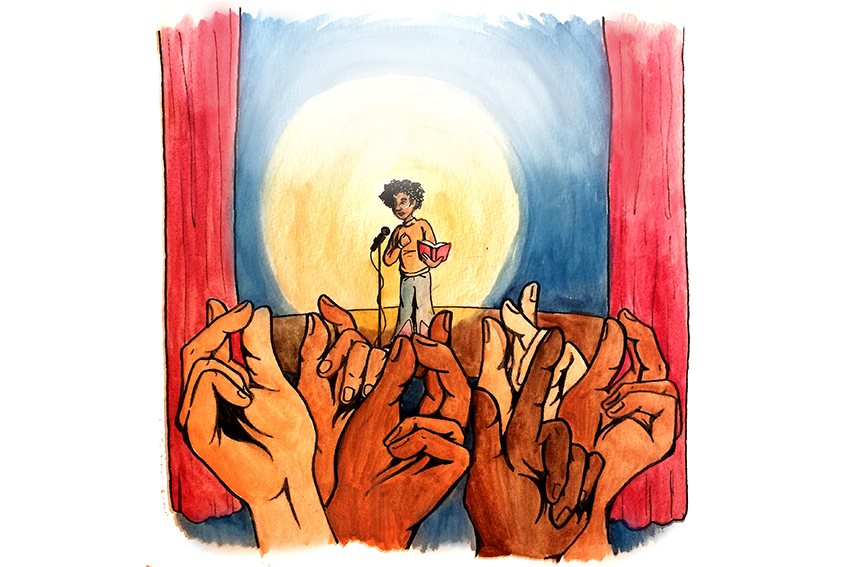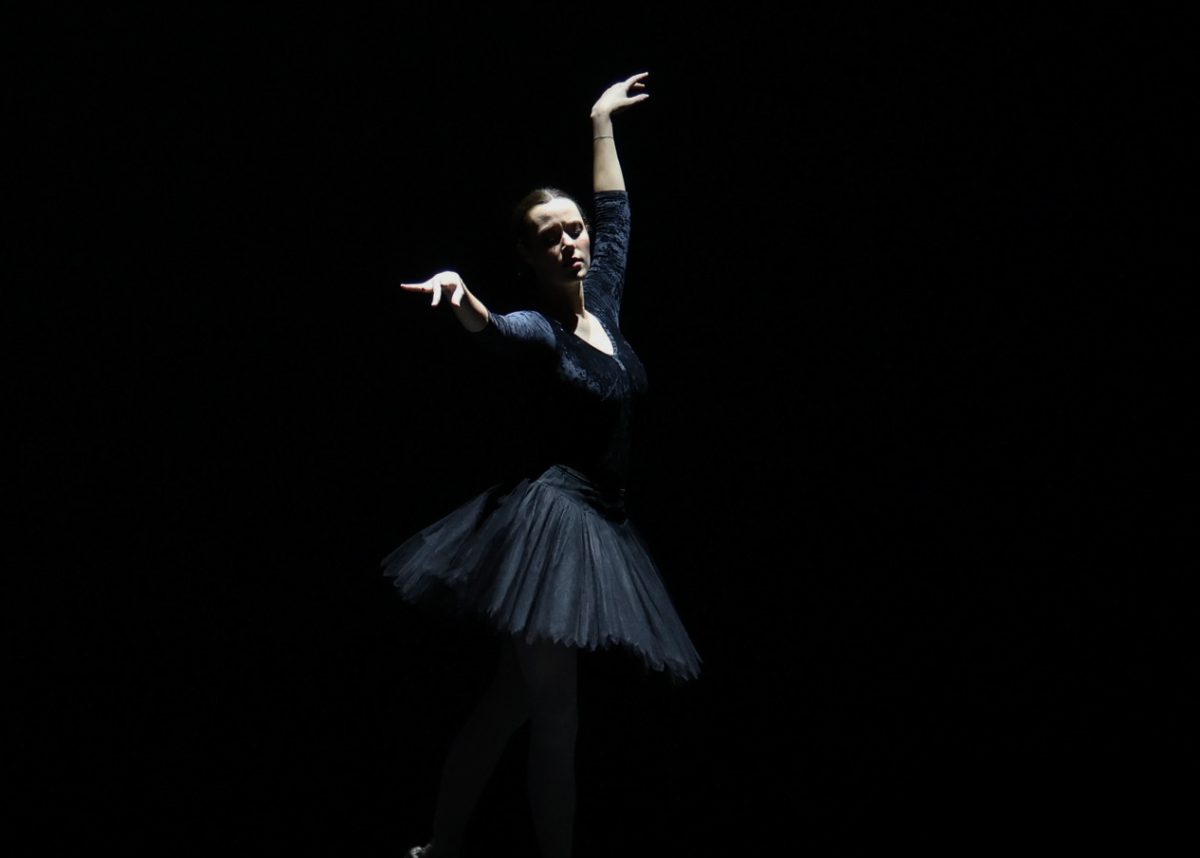The lights are dimmed, focused only on the straight-backed poet preparing for his performance. The audience fills the room with sound: snaps, shouts of encouragement, whistles and the rare boo of discontent when they disapprove of the score. Everyone is waiting patiently to see which poet will garner one of the five remaining spots on the Austin Poetry Slam’s national team.
The national team — which will compete in the 2018 National Poetry Slam in Chicago from Aug. 13 until Aug. 18 against more than 70 other teams — filled its five remaining spots at APS’s grand slam finale, held at the Paramount stateside theatre last Saturday.
Andre Bradford, who performs under the name S.C. Says, was crowned the grand slam champion, accumulating the highest score after performing two pieces that discussed his battle with depression and the loss of a friend.
“I’m a huge admirer of pretty much everyone who is on that stage,” Bradford said. “To compete and be able to win that night in particular, the hardest night to win, is really humbling for me.”
This will be Bradford’s fourth national competition with APS. Bradford described the national poetry slam community as one of the most open and welcoming groups he has ever been a part of.
“You kind of get to hear stories from all kind of walks of life and different perspectives, and they really embody that at nationals,” Bradford said. “You have people from all across the country, different socioeconomic backgrounds, and you get to hear their stories.”
As for the slam poetry scene in Austin, Bradford said it is one of the best he’s seen, and that the competitiveness of the group actually helps when it comes to their performances at nationals.
“I think we have one of the best scenes in the country,” Bradford said. “The show is constantly packed, we’re very fortunate we’re also a really competitive scene … I think that works out in our favor, the work that we are able to bring to nationals is of a caliber that really helps us succeed there.”
To prepare for the national competition, Joanna Barnett, another one of the advancing poets, said it can be easy to focus solely on the strategy of your group’s performance as a means for control.
“It is tempting to focus on the strategy of slam because it’s the one factor, beyond our performance, that we have some semblance of control over,” Barnett said. “Slam can be quite arbitrary, because the judges are just random audience members and no one has any kind of rubric … so we latch on to strategy because, whether effective or not, that’s what we have.”
Christopher Michael, a member of APS’s national team, said strategy includes what types of poems you perform, and how those poems are delivered, either in a group or individually. While performing emotional pieces can be a form of coping for the artist, they also tend to score higher.
“It’s beneficial to the individual on levels of discussing it or getting it off your chest,” Michaels said. “It is also beneficial for individuals because those poems tend to score higher cause people score you higher when you’re exposing yourself.”
While the more emotionally moving pieces can garner higher scores they also allow the poets to be vulnerable and further add to the openness and welcoming atmosphere of the slam poetry community.
“The harder poems tend to be about things that we don’t really talk about so it’s kind of a breath of fresh air to actually hear someone talk about their life,” Bradford said. “It’s pretty cool to get to go to a space and be vulnerable and know that people are going to respond to that and they are willing to share in that with you.”





















